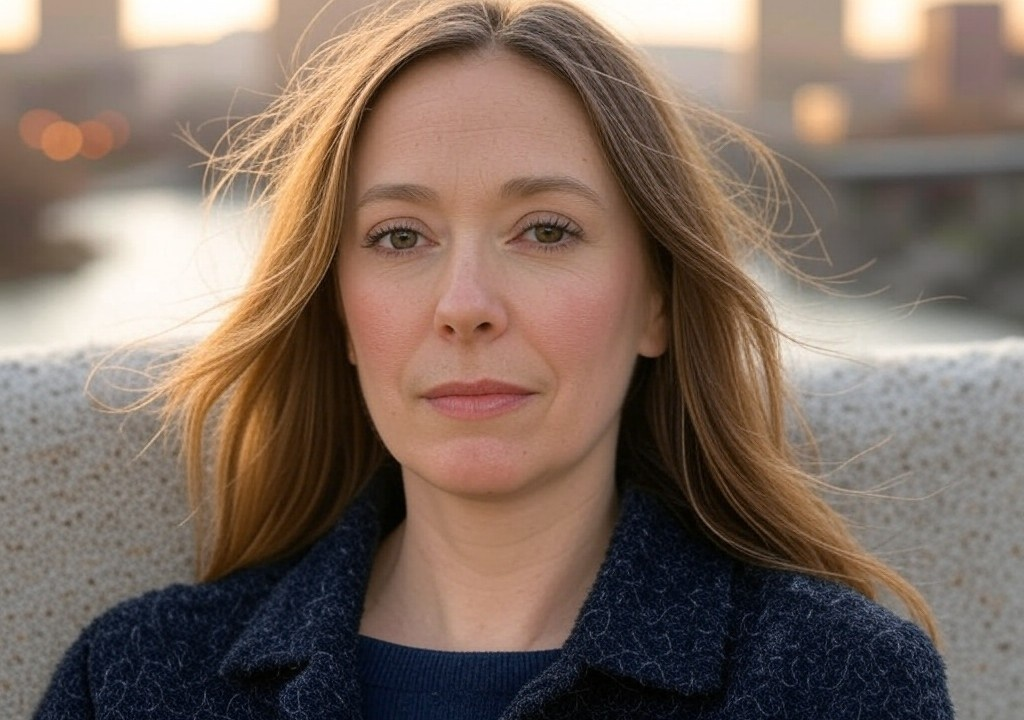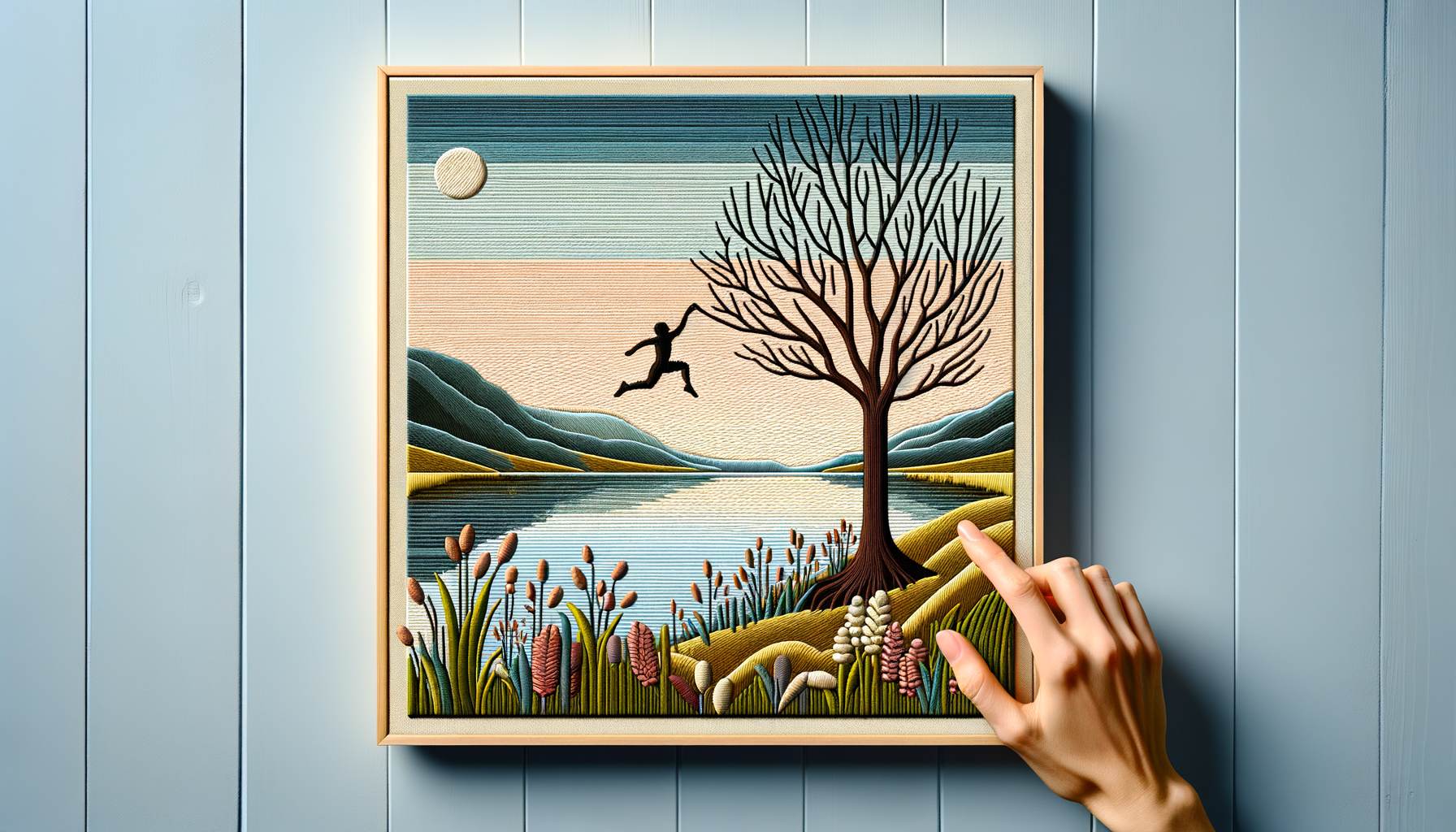The Leap That Changed My Life
The Spark: A Leap or a Rut?
Most big decisions in life don’t announce themselves with a drumroll, do they? They creep up on you instead, dressed in ordinary pajamas, asking you to solve today’s Wordle or decide what’s for lunch. For me, the moment I realized I needed to take a leap of faith wasn’t bullet-pointed on my to-do list. It began with a conversation over IPAs—because what else would it be in Boise?—in the back corner of my parents' brewery.
“You’ve got something to say, Les,” my dad said, rubbing his grizzled jaw in the way he always did when he warmed up to advice. “And your voice is bigger than Boise.”
That was his not-so-subtle way of saying I should leave. Leave Boise? My home base? My safety net? The city where I knew everyone from the baristas at Flying M Coffeehouse to the guy who fixed my bike chain last summer?
It felt unthinkable.
But here’s the truth about comfort zones: they’re called “zones” for a reason. They’re not infinite plains. They’re small, circular, and—if you stay in them long enough—kind of claustrophobic. And so, three weeks after my dad’s little IPA-fueled heart-to-heart, I found myself standing on the curb outside O’Hare, one duffel bag in hand, one massive pit in my stomach, and zero idea of what the next six months in Chicago would hold.
Spoiler alert: it wasn’t deep-dish pizza and jazz bars. It was much, much messier than that.
Life in the Deep End
My Chicago life kicked off with just the kind of grace and poise you’d expect from someone who had lived in the same city for, oh, forever. Picture me, on my second day, trying to make sense of the local “L” train system and accidentally ending up at a stop 20 blocks from where I meant to be. As I waited 45 minutes for the right train to show up, I tried to tell myself this was part of the curve—because, much like dating someone new, moving to a foreign city is a dance of trial, error, and occasionally crying in public.
The fellowship I’d accepted wasn’t glamorous, either—and by “wasn’t glamorous,” I mean I spent most of my first month fact-checking for senior editors whose only feedback on my work was usually a scrawled “fix this” in the margins. I was young in the city and young in my career, which sounds romantic on paper but mostly meant that I regularly reheated Trader Joe’s dumplings and stared out my apartment window, questioning every choice I’d ever made.
But then something happened—little by little, it became home. The same way an awkward first date can, miraculously, shift into something worth holding onto.
There was Langston, my 75-year-old neighbor, who brought me tomatoes from his garage garden and mused about the exact number of storms it takes before the Chicago River really looks clean (he said it was three, but I’ll let you be the judge). There was the tiny balcony above my apartment, where I’d string up cheap fairy lights and watch the glow of the city, realizing how much I loved the constant buzz Chicago gave me. And there was—and there always is—the work. Slowly, pencil marks gave way to compliments. “Good work” slipped into my inbox. I felt something like belonging take root.
Precious Potatoes and the Risk of Staying Small
Taking risks like this, uprooting yourself, feels counterintuitive when you’ve grown up nestled in the kind of town where farmers markets aren’t a trend—they’re just called Saturday. But risk—real risk—is like planting a potato. (Stay with me; my Idaho roots are showing.) Think about it: to grow a potato, you bury something whole under literal dirt. You won’t see it. You’ll probably forget about it for a while. It’s only when you finally dig it up—months later—that you understand it’s been multiplying all along.
Taking the fellowship didn’t just teach me how to navigate public transit or write a lede someone might actually compliment. It taught me something bigger: every leap, even the smallest wobble across the starting line, has the potential to reshape you. Sometimes we’re so focused on the potential for failure, we forget about the potato multiplication effect—how much more could grow beneath the surface.
Here’s what’s funny. When I first got back to Boise, people kept asking me things like, “Wow, Chicago! Was it worth it?” It was as if I’d summited Everest or tried surfing on lava. But my answer, every time, still feels the same: it was never about Chicago. It wasn’t about getting good at trains or developing a deepening appreciation for skyline views. It was about deciding I was big enough to try at all.
How to Take Your Own Leap
Not everyone’s leap involves moving to a city where the bagels require a knife and a soft prayer to chew. But everyone faces something—a friendship you’ve outgrown, a career itch you can’t ignore, a relationship that teeters just on the edge of what-ifs. Wherever you’re standing, this might help:
-
Start Smaller Than You Think
My leap was leaving Boise, but maybe yours is starting a new hobby, inviting someone out, or saying yes to something that scares you for no particular reason. You don’t need a coast-to-coast move to find clarity. -
Get Comfortable Being Barefoot in the Dirt
Growth isn’t polished. It’s messy. Think less Glamour cover and more late-night Target run energy. You’ll probably fail. You’ll probably sweat your way through some mistakes. Lean into the awkwardness. -
Take Stock of the Idahos in Your Life
It’s surprisingly hard to leave a good comfort zone. That’s why we stay in them—we love their reliability, their predictability. But even the best comfort zone can’t teach you everything. (And yes, the metaphorical Idahos will still be there when you’re ready to come back.)
The Aftermath: What My Leap Gave Me
I won’t lie to you—when I landed back in Boise after my six months were up, I didn’t feel like a conquering hero. (Honestly, I felt more like a deflated birthday balloon.) But what Chicago left me with was something better than instant glory: perspective.
Now, when I’m sitting in the brewery or hiking Camel’s Back on the weekend, I hold memories of the unfriendly Chicago wind and the equally unfriendly copy desk critiques a little closer. Not because I’m nostalgic for the difficulty, but because I know it forced me to grow, to stretch, to reimagine myself a little.
In dating, in work, in life, we’re all called to that moment eventually—the one where we examine our lives and ask: is it enough? And when the answer is “not quite,” well, I’d encourage you to leap. Trust me. It’s worth it, dirt and all.




















